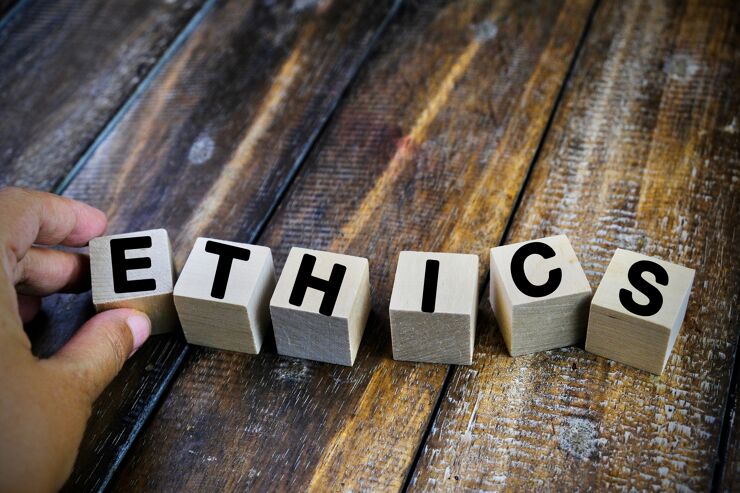
KEY POINTS
- NEC project managers need to balance the commercial demands of the client and project with their professional duties and ethics.
- NEC clause 10 helps to support ethical behaviour and clients can further specify it through additional Z clauses.
- NEC project managers can be the independent force for good on projects by taking small but determined steps to act professionally and do the right thing at each project phase.
Do NEC project managers feel confident and capable in their NEC projects? My firm’s experience is they do, until they think about it more deeply, and then often they do not. Separating technical expertise from professional duties, and staying on the right side of ethics and law while juggling a demanding client and project, is often challenging.
Ethics concerns what is ‘morally good and bad and morally right and wrong… [including] a system or theory of moral values and principles’, according to the Britannica Dictionary. A good starting point for NEC project managers is their professional body code of conduct, as it combines the technical and professional sides.
Ethics is everywhere, although people often think that ethics (and law) are not their problem, or are well-meaning but over-complicate their job. Managers of internal projects may think ethical issues do not or cannot arise, and strong communicators often seek refuge in collaboration.
Ethics can be disguised within four key influencing factors:
- organisational, such as culture, policy, leadership and governance, including stakeholders and investors
- immediate environs, such as colleagues or management
- internal factors, such as business-as-usual
- external factors, such as paying customers.
Social contract
Much of global ethics derives from Greek and Roman philosophers and from systems, notably in India and Egypt, although all are bound up in deities and superstition. For a slightly more modern take on ethics I can recommend Leviathan by philosopher Thomas Hobbes (1588-1679), whose work I have distilled into Figure 1.

Figure 1. Why law is important to upholding ethics
(derived from seventeenth century philosopher Thomas Hobbes)
He said humans crave survival but engage in war, despite understanding the negatives, due to self-interest. Thus peace gets thwarted by lack of an overarching social contract. Distinguishing this from a business contract is important.
For a social contract to succeed, the handing over of power requires an enforcing authority or sovereign. It is a delicate balancing act of sufficient or proportionate power and – importantly – no more nudging ethical behaviour and avoiding punishment.
Ethics and law
Law’s interaction with ethics arises from norms such as a system of civil and criminal rules, which balance self-interest against the greater good. For example, tough business contracts can negatively influence behaviour, hence whistleblowing laws exist to level the ethical seesaw.
In the UK, the ongoing Covid-19, Post Office Horizon IT and Grenfell Tower public enquiries are of major interest to ethics and law. Ethical concerns thread throughout, both at corporate level (such as lack of transparency, insufficient governance and bestowing advantage) and in individuals (such as turning a blind eye, lack of accountability and unethical behaviour becoming the norm). Similar sobering examples exist in other countries too.
NEC contracts contain obligations to comply with the law, which encompass ethics when governments have legislated on behalf of society a baseline for behavioural norms, such as anti-corruption, health and safety, modern slavery and competition.
However, contracts can go further: for example, a buyer wants a seller to comply with its policies and, if agreed, this becomes an additional Z clause in NEC contracts. In English law, there is no requirement to act in good faith, but contracts can use clauses to encourage and require ethical behaviour, such as NEC’s clause 10.
Tips for ethical project managers
NEC project managers can tackle ethics in each phase of a project. In the pre-start phase, they should research the organisations and individual contact points (if applicable referring to the Transparency International Index at www.transparency.org); read the project documents including organisational policies; and arrange an introductory meeting and use professional curiosity to identify where ethical pinch-points could arise.
In the project phase, project managers should be guided by their experience and gut instinct, the ultimate test being whether they would be comfortable explaining something to a court. Support from confidantes and an industry helpline can reduce loneliness, and keeping a diary aids reflection and memory. Essential NEC tools for the ethical project manager are early warnings to flag issues; contract processes to steer decision making (such as compensation events, payments and completion); thoughtful refereeing; and seeking support from the NEC supervisor. On any intervention, such as a health and safety investigation, the short term may be awkward but will prove appropriate when colleagues or the public are seen to be protected.
In the post-completion phase, project managers may need time to recover due to depleted energy or shaken confidence. The gut grounds a project manager who did their best with the social contract and who has helped others with courage and leadership. Unwittingly being swept up in others’ ethical issues is exhausting, but ultimately they are not for the project manager solely to solve.
Conclusions
In conclusions, steadfast ethical behaviour in NEC contracts can be challenging for NEC project managers because business contracts create complicated dynamics. Small but determined steps to act professionally and do the right thing, and feel it, should be the focus. NEC project managers can be the independent driving force for good on all projects.




